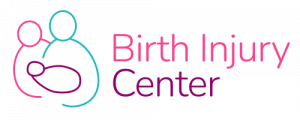Is Tylenol Linked to Autism?
Pregnant women often take the over-the-counter and prescription medication Tylenol (Acetaminophen) for pain relief and fever reduction. However, some studies show a link between Tylenol and autism. As a parent, you deserve access to the latest facts and information. The Birth Injury Center’s mission is to inform you about birth injuries and help you seek compensation and justice if your child has suffered preventable harm.
Home > Tylenol Link to Autism
- Last Updated Date: March 24, 2025
Since September 2022, over 100 lawsuits have been filed nationwide against acetaminophen manufacturers. The lawsuits filed are claiming damage over the failure to warn pregnant users that Tylenol and generic versions may increase the risk of having a baby with autism and/or ADHD (attention deficit hyperactive disorder).
At the Birth Injury Center, we can answer your questions regarding Tylenol and autism so you understand the latest legal information and medical studies on this subject. If you suspect your child was harmed by Tylenol use during pregnancy, we can connect you with a birth injury lawyer in all 50 states to investigate your case and evaluate whether you have legal recourse.
What is Tylenol?
Tylenol is one of the most common medications on the market. It is the brand name for acetaminophen but is often called paracetamol in other areas of the world. It is typically sold as an over-the-counter medication, but doctors also prescribe it. Johnson & Johnson’s subsidiary McNeil Consumer Healthcare manufactures the drug.
Tylenol is a pain reliever and fever reducer. It is recommended primarily for minor pains and aches. It reduces fever by helping the body eliminate excess heat. It is often recommended to pregnant women to help with pregnancy symptoms, such as:
- Backaches
- Cramping
- Headaches
- Muscle soreness
- Fevers
What Is Autism?
Autism is short for autism spectrum disorder, a class of brain development disorders. It creates problems with social interaction, communication, and behavior. Autism is considered a spectrum because of the range of variety in symptom severity.
Symptoms can be mild or severe depending on where on the spectrum your child falls. During infancy, symptoms of autism often include:
- Lack of happy expressions or smiles by six months
- Lack of any speech by 16 months
- Lack of sounds or cooing by 12 months
- Lack of language or social skills as the child develops
During later childhood, symptoms become even more pronounced. Symptoms can include social withdrawal, resistance to physical contact, or expressionless communication. Children with autism are often highly sensitive to light and sound or engage in repetitive movements such as rocking. The impact on your child’s life and your life can be severe.
autism spectrum disorder (ASD) by the age of eight.
Does Tylenol Cause Autism?
Many studies now seek to answer this important question. Several studies over the last few years have raised concerns about the potential link between Tylenol and an increased risk of autism spectrum disorder in children. However, these studies are far from clear, and conflicting results have been observed.
Tylenol Linked to Autism
In a study published by JAMA Psychiatry in 2020, several physicians found a link between in-utero acetaminophen exposure and the risk of autism spectrum disorder. The study considered a cohort of 996 mother-infant pairs. It found that Tylenol exposure during gestation was associated with significantly increased risks of childhood attention-deficit hyperactivity disorder, or ADHD, and autism spectrum disorder (ASD).
The final results showed a statistically significant correlation between Tylenol exposure and autism. Of the 996 participants, the final sample included the following:
- 257 children with ADHD only
- 66 with autism only
- 42 with both ADHD and autism
- 304 with other developmental disorders
- 327 who did not have ADHD or autism
The U.S. Food and Drug Administration has also expressed concern about the possible link between Tylenol and autism. A 2015 FDA safety announcement addressed several studies suggesting a link between Tylenol and autism and informed parents of the medication’s potential risks. However, it also made clear that competing evidence called this link into doubt. The FDA continued its previous guidance on Tylenol use during pregnancy.
Doubts About the Link Between Tylenol and Autism
Doubts still exist about the link between Tylenol and autism. One study found that normal dosages of Tylenol during pregnancy pose no substantial risk of autism or other birth defects. It recognized that several other studies had shown a correlation between Tylenol and autism but determined that other variables and improper procedures likely influenced this finding.
The study did note, however, that it was limited to appropriate doses of Tylenol during pregnancy and did not necessarily address over-prescription or high doses of the medication.
Tylenol Lawsuit
Hundreds of lawsuits have been filed nationwide over Tylenol’s alleged link to autism. The federal lawsuits have been consolidated into multidistrict litigation, or MDL, in New York. This means a single federal judge will manage all the cases, and the parties will share discovery.
Consolidation into an MDL makes the process more efficient. When the discovery phase concludes, a few cases will go to trial as a test to determine how the remaining cases may resolve. These test trials are known as bellwether trials. The outcome of the bellwether trials will help determine whether the remaining cases will settle and for how much.
To help you stay up-to-date with what is happening in the lawsuit, here are the latest updates on the MDL:
August 2023 Tylenol Lawsuit Update
- August 2. 2023: Judge Cote is asking for the FDA to weigh in on updating warning labels associated with acetaminophen products and conduct further investigation into the link between prenatal exposure to Tylenol. The judge approved the FDA’s plea for more time to submit their statement of interest. The FDA now has until September 15, 2023, to deliver their statement. The Daubert motions questioning the validity of causation evidence are expected to arrive just four days after that. The FDA’s stance on this issue could dramatically influence the lawsuit’s outcome.
July 2023 Tylenol Lawsuit Update
- July 18, 2023: 64 cases were added to the multidistrict litigation, or MDL.
- July 7, 2023: Presiding Judge Denise L. Cote issued several orders directing parties to show cause as to why they did not complete their fact sheets and other discovery obligations.
- July 1, 2023: Several state court acetaminophen lawsuits are pending throughout the country, including a lawsuit against Walgreen Co. in Illinois.
June 2023 Tylenol Lawsuit Update
- June 31, 2023: The plaintiffs filed expert reports. The defendants are still expected to file their expert reports later. A later hearing will likely determine whether these reports sufficiently link autism to Tylenol to permit the case to continue.
- June 5, 2023: Plaintiffs in the lawsuit pushed back against Johnson & Johnson’s request for immediate appeal.
May 2023 Tylenol Lawsuit Update
- May 22, 2023: Judge Cote granted a motion to dismiss a case filed by CVS and other defendants under Texas’ “safe harbor” law. This could mean that all Texas Tylenol/autism cases will be dismissed.
- May 17, 2023: Defendants Walmart Inc. and Target Corp. lost in their motion seeking dismissal of the lawsuits against them. Judge Cote determined that California law applies to the Anderson lawsuit, while Texas law applies to the Washington lawsuit and should be dismissed.
- May 9, 2023: Johnson & Johnson filed a request for an interlocutory appeal over the judge’s denial of the preemption motion.
- May 1, 2023: The judge asked two questions of the FDA: (1) Should the proposed warning be added to acetaminophen labels? and (2) Does science warrant the addition of warning labels regarding in-utero exposure to Tylenol and the potential link to autism?
April 2023 Tylenol Lawsuit Update
- April 21, 2023: The judge denied Johnson & Johnson’s motion to dismiss based on the preemption doctrine.
- April 20, 2023: The judge asked the government for an opinion about the plaintiffs’ proposed warning that they want to be added to all bottles of Tylenol and acetaminophen.
- April 13, 2023: The judge asked what language the plaintiffs want for the labels on medicine bottles. The plaintiffs propose an autism warning for Tylenol, which states:
“Autism/ADHD: Some studies show that frequent use of this product during pregnancy may increase your child’s risk of autism and attention deficit hyperactivity disorder. If you use this product during pregnancy to treat your pain and/or fever, use the lowest effective dose for the shortest possible time and at the lowest possible frequency.”
- April 9, 2023: The CDC released recent data showing the rate of children with autism in the U.S. increased in recent years. New data shows that about 1 in every 36 children are diagnosed with autism. ASD is 3.8 times as prevalent among boys as among girls
March 2023 Tylenol Lawsuit Update
- March 31, 2023: The judge ruled over objections from the defendants that rebuttal expert testimony must be in the expert discovery schedule. The plaintiffs had until March 15 to disclose any expert in maternal-fetal medicine. The order also set forth other expert witness disclosure deadlines in the case.
- March 27, 2023: Every new and existing plaintiff must complete a plaintiff fact sheet adopted by the judge. This will help the court better understand each plaintiff’s role in the MDL.
- March 10, 2023: There are now 107 pending cases as part of the autism/ADHD litigation against Tylenol and acetaminophen.
- March 9, 2023: Plaintiffs filed their memorandum in opposition to the motion to dismiss filed by Johnson & Johnson based on the preemption doctrine.
February 2023 Tylenol Lawsuit Update
- February 11, 2023: The parties must submit competing fact sheets on February 28, 2023. Fact sheets provide critical information to the court about the plaintiffs, their history, and their relationship to the claims at issue.
January 2023 Tylenol Lawsuit Update
- January 20, 2023: The judge issued an order outlining an initial discovery plan. Her plan seeks to move the case along quickly.
- January 11, 2023: The judge approved a short-form complaint for any new plaintiff joining the case to streamline the process.
- January 9, 2023: Smith v. Walmart, a new Tylenol autism lawsuit, was transferred from Florida to New York to join the mass litigation.
- January 1, 2023: The court appointed Randi Ellis as the census special master for the lawsuit. She will coordinate the collection of critical information from all plaintiffs in the case.
December 2022 Tylenol Lawsuit Update
- December 15, 2022: The judge ordered plaintiffs in the MDL to file a “master complaint” to apply to all future cases in the MDL.
- December 1, 2022: Walmart is asking the judge to reconsider her decision denying Walmart’s motion based on federal preemption.
November 2022 Tylenol Lawsuit Update
- November 15, 2022: Walmart’s motion to dismiss was denied.
- November 7, 2022: The judge approved the structure for the defense lawyer committee to make decisions for the collective retail defendants in the case.
- November 4, 2022: CVS, Walmart, and Walgreens paid $13 billion in a settlement in an unrelated case. They will pay this amount to state and local governments related to opioid lawsuits. While separate from the Tylenol lawsuit, this settlement shows the importance of these types of cases in holding pharmaceutical companies responsible for their actions.
October 2022 Tylenol Lawsuit Update
- October 28, 2022: The judge set a deadline of November 14, 2022, for attorneys to submit applications to the plaintiffs’ leadership committee.
- October 4, 2022: A new MDL covering Tylenol lawsuits is now official. Titled In Re: Acetaminophen – ASD/ADHD MDL No. 3043, the litigation will take place in the Southern District of New York. Judge Denise L. Cote will preside over the MDL.
September 2022 Tylenol Lawsuit Update
- September 30, 2022: Oral arguments were heard from a group of plaintiffs requesting to consolidate multiple Tylenol autism cases into multidistrict litigation. Defendants are strongly opposed to the request. If granted, this could become one of the largest mass torts in U.S. history.
- September 28, 2022: There are over 87 Tylenol autism/ADHD lawsuits filed in seven states. Defendants include major retail chains such as CVS, Walgreens, and Walmart.
- September 11, 2022: A date for oral arguments was set to determine whether the multiple autism cases should be merged into multidistrict litigation.
August 2022 Tylenol Lawsuit Update
- August 9, 2022: Plaintiffs in the Tylenol lawsuits filed a reply supporting their request for consolidation.
- August 2, 2022: Defendants filed a brief opposing the plaintiffs’ motion seeking consolidation of multiple Tylenol autism cases.
How to File a Tylenol Autism Lawsuit
To file a Tylenol autism lawsuit, contact a qualified personal injury attorney that specializes in product liability. Personal injury lawyers will help you collect the information you need to prove negligence including medical records and other evidence that shows you suffered losses.
You deserve to know the potential connections between Tylenol and your child’s autism. You also have the right to receive accurate medical information to understand what medications risk your child’s health. If a pharmaceutical manufacturer or other party sold a defective drug or failed to warn of known risks and your child was harmed, you could be entitled to substantial compensation.
If you took Tylenol or acetaminophen during your pregnancy and have a child with autism spectrum disorder, you may have legal recourse. The Birth Injury Center can help you understand your options and your rights. Contact us today so you don’t miss out on potential compensation for your child’s injuries.
Written by:
Birth Injury Center Team
The Birth Injury Center aims to create informational web content and guides to help women and their families seeking support and guidance for birth injuries caused by medical negligence. All of the content published across The Birth Injury Center website has been thoroughly investigated and approved by medical expert Natalie Speer, RNC-OB, Attorney Ryan Mahoney.


